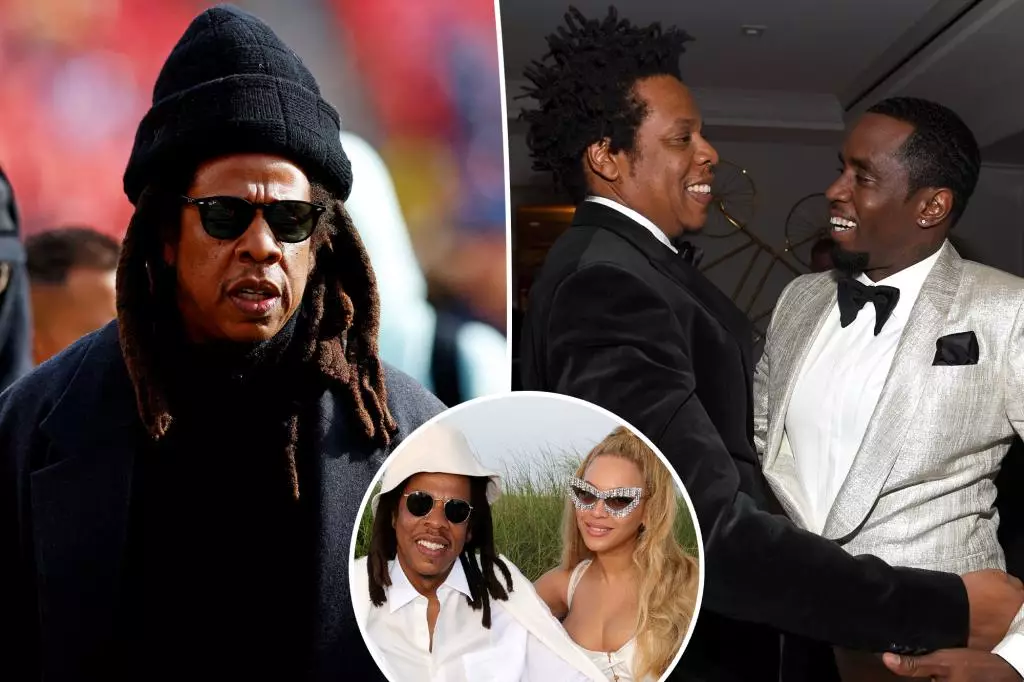The recent allegations against Jay-Z, which entail allegations of heinous misconduct involving a minor, forced the iconic rapper and entrepreneur into the public eye for all the wrong reasons. Jay-Z, whose real name is Shawn Carter, firmly denied the claims, characterizing the lawsuit as a manipulative attempt to extort from him financially. The situation represents not just a moment of crisis for his personal reputation but also serves as a catalyst for broader discussions surrounding celebrity, accountability, and the justice system’s handling of such allegations.
In a statement addressing the lawsuit filed by Texas attorney Tony Buzbee, Jay-Z’s response was notably fierce and defensive. He asserted that the allegations were not only baseless but also deeply damaging, not only to his persona but also to victims who genuinely suffer from such traumas. By framing the lawsuit as a blatant attempt at blackmail, Jay-Z brought focus not only to his own plight but also to the insidious nature of exploiting allegations of sexual misconduct for monetary gain.
The media’s role in amplifying allegations against public figures can often exacerbate the stigma associated with them, regardless of their veracity. In this instance, the very nature of the allegations thrust both Jay-Z and his family into a public spotlight laden with scrutiny and judgment. Jay-Z articulated concern for how the nature of such allegations can impact his children and their ability to grow up aware of their father’s legacy without undue trauma or influence from sensationalist media coverage.
The rapper’s reference to his daughter Blue Ivy, who is at an age where she could be confronted by peers regarding these allegations, highlights how personal integrity and family dynamics can suffer when public figures are embroiled in controversies. Jay-Z’s lament for his child’s loss of innocence speaks volumes about the emotional toll such accusations can take on families, regardless of the outcome in a legal sense.
Jay-Z’s call for a criminal complaint rather than a civil one signals his belief that these allegations warrant thorough investigation and accountability, rather than a public spectacle aimed at financial compensation. His vehement denial underlines a key point in the debate about celebrity accountability: the distinction between civil claims and criminal acts. The juxtaposition of his experiences with genuine victims of abuse raises essential questions about the motivation behind such lawsuits.
He asserted that anyone perpetrating such alleged crimes should face the full extent of the law, thereby aligning himself with a stance that advocates for true victims over those who exploit situations for personal gain. This sentiment raises awareness of real abuse cases that require attention and justice, drawing a line between legitimate claims and exploitative tactics that tarnish the credibility of those deserving justice.
The situation highlights a pressing concern in society regarding justice and the impact of celebrity culture on it. As a figure who famously rose from a challenging background in Brooklyn to achieve massive success, Jay-Z’s experience serves as a reminder of the pathways often undertaken by those who come from marginalized communities. His assertions against the attorney involved in the lawsuit, suggesting that such exploitation undermines the values upheld in military service, emphasize a need for integrity and ethics in legal proceedings, especially when it involves vulnerable populations.
Moreover, Jay-Z’s commitment to not settle, and instead expose what he perceives as fraudulent behavior, sparks a crucial dialogue about the responsibilities of individuals both in the public eye and within the legal framework. It raises questions of ethical conduct, personal honor, and the necessity for a legal system that can differentiate between unfounded allegations and legitimate claims, ensuring that victims of true abuse find their voices and requisite justice.
Overall, this incident reveals the fine line celebrities must walk between managing public perception and protecting their personal lives, particularly when their names are dragged into serious allegations. Jay-Z’s powerful defense, while a reflection of the personal distress such claims can cause, also serves as a call to action—urging society to support genuine victims while concurrently scrutinizing those who seek to leverage such traumatic narratives for nefarious purposes. In navigating this intricate web of public scrutiny, personal integrity must remain paramount, not just for celebrities but for society at large.

Leave a Reply